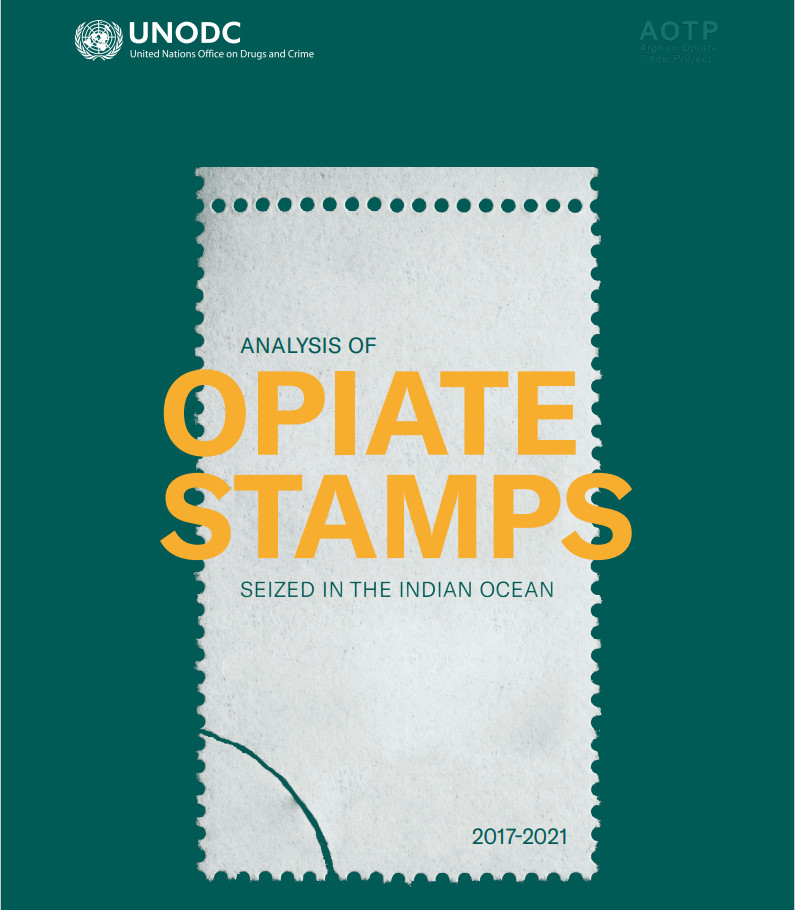Source: Paris Pact
Geographical area: Global
Date: 4 April 2023
The UNODC Afghan Opiate Trade Project (AOTP), under the framework of the UNODC Global Programme Criminal Network Disruption, has launched its new study on “Analysis of opiate stamps seized in the Indian Ocean 2017-2021”. The analysis provides a unique insight into stamping practice of Afghan opiates seized in the Indian Ocean. Sustained interdictions by national authorities and international maritime coalitions, including the Combined Maritime Forces (CMF) and the EU Naval Force-Somalia (EUNAVFOR), have resulted in increased seizures of opiates (and methamphetamine) in the Indian Ocean.
Drug packages are marked with a wide range of stamps and signs including hand-pressed and hand-written markings. They can potentially provide valuable information about manufacturers, drug trafficking organizations, production year and destinations as well as trafficking routes. The analytical study aims at filling the knowledge gap, informing policies and practices to address the illicit opiates trafficking, and supporting criminal justice agencies working to disrupt the supply chains around the world.
The research is based on the examination of 87 cases of heroin bags that carry various markings and covers an overall 32 seizures made in the Indian Ocean in 2017-2021. It is supplemented by interviews of nine drug traffickers (key informants) from Afghanistan, who provided their views and opinions on various hand-pressed and printed stamps exhibited in the report.
This activity is aligned with the Thematic Pillar I (Cross-border Cooperation) of the Vienna Declaration, which serves as the roadmap for the Paris Pact Initiative.
The report is available for download from the UNODC web site: https://www.unodc.org/documents/data-and-analysis/AOTP/Drug_Stamp_Report_Online_1.pdf
